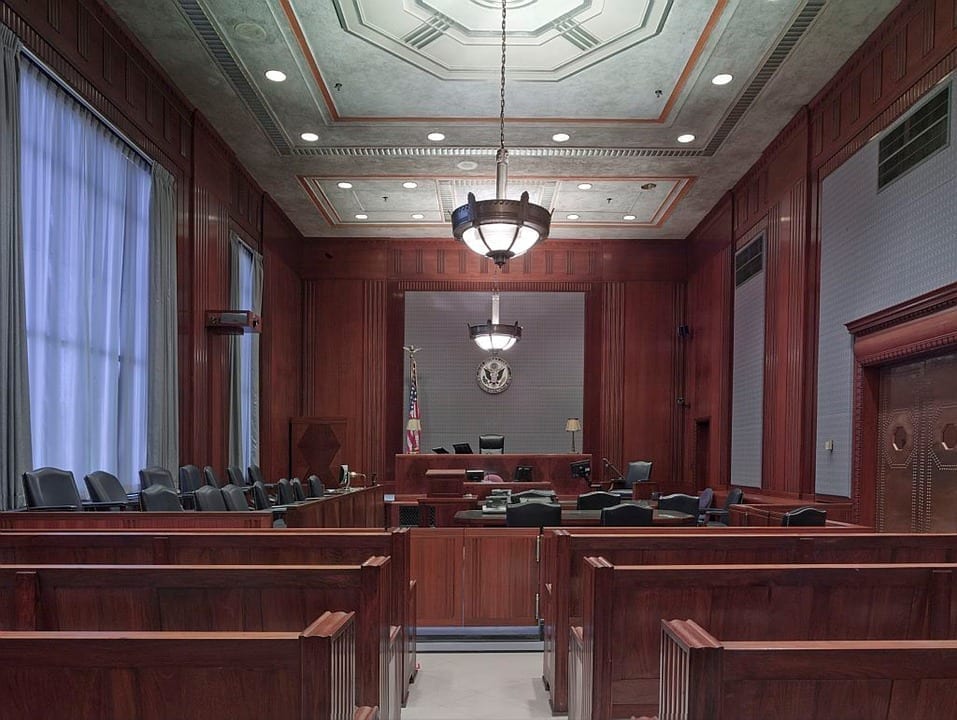Despite Mr. Perez-Carrera’s removal, the Supreme Court of New Jersey considered his appeal because it raises an issue of significant public importance that is likely to recur.
Elizabeth, New Jersey – On March 30, 2021, the United States Supreme Court decided State v. Oscar Lopez-Carrera and State v. Juan C. Molchor; State v. Jose A. Rios, in which the Court held that the Criminal Justice Reform Act (“CJRA” or “Act”) does not empower judges to detain defendants who are foreign nationals to prevent immigration officials from removing them from the country before trial.
The CJRA, N.J.S.A. 2A:162-15 to -26, enacted January 1, 2017, was a monumental transformation of the State’s pretrial justice system from one that is monetary-based to one that is risk-based. Rather than setting monetary bail as a condition of release, the CJRA requires trial courts to assess whether a defendant may be eligible for release pretrial by non-monetary means such as release on own recognizance, release under supervision, or pretrial diversion if they do not pose “a significant risk of non-appearance, danger, or obstruction.” N.J.S.A. 2A:162-15. Since adopting this system which favors release over detention, the State has experienced a dramatic decline in its pretrial jail detention rate as well as its overall pretrial jail population.
In the case of State v. Juan C. Molchor; State v. Jose A. Rios, defendants Juan Molchor and Jose Rios, were arrested and charged with second-degree aggravated assault, N.J.S.A. 2C:12-1(b)(1), and fourth-degree criminal mischief, N.J.S.A. 2C:17-3(a)(1). The States’ Pretrial Services prepared Public Safety Assessments (“PSAs”) for both defendants. Considering that neither defendant had any prior convictions, juvenile adjudications, failures to appeal, or pending charges, the PSAs rated Mr. Molchor and Mr. Rios the lowest level of risk for failure to appear and second lowest for new criminal activity. Pretrial Services recommended that both defendants be released with monthly reporting as a condition (as opposed to monetary bail) as per the CJRA. The State, however, moved for pretrial detention, claiming that both Mr. Molchor and Mr. Rios posed a flight risk because they are undocumented immigrants. Despite having no evidence that U.S. Immigration and Customs Enforcement (“ICE”) was interested in either defendant, the Court ordered both defendants detained pretrial, citing only a single finding of fact to justify detention in both cases: “particular circumstances, specifically, defendant is an illegal alien.”
On appeal, the Appellate Division consolidated and reversed both cases, finding support in federal case law such as United States v. Santos-Flores, 794 F.3d 1088, 1091 (9th Cir. 2015) to conclude that when read in context, the CJRA “intended that a defendant may be detained based on the risk of non-appearance only if it arises from the defendant’s own misconduct or volitional act” — and not “to thwart federal immigration action.” State v. Molchor, 464 N.J. Super. at 296. After remanding both cases to the trial court, Mr. Molchor and Mr. Rios were released on conditions on July 10, 2020, to which the Court granted leave to appeal.
In the case of State v. Oscar Lopez-Carrera, the defendant Oscar Lopez-Carrera was charged with second-degree attempted sexual assault, N.J.S.A. 2C:5-1(a)(1) and 2C:14-2(c)(4), and fourth-degree criminal sexual contact, N.J.S.A. 2C:14-3(b) in connection with an alleged attempted sexual assault of a minor. Similar to the defendants in State v. Juan C. Molchor; State v. Jose A. Rios, Mr. Lopez-Carrera had no prior convictions, juvenile adjudications, failures to appeal, or pending charges which led the PSA to rate him the lowest level of risk for both failure to appear and new criminal activity. Pretrial Services recommended that the defendant be released on his own recognizance as a condition (as opposed to monetary bail) as per the CJRA. The State concurred, and Mr. Lopez-Carrera was released on June 13, 2019. Having previously issued a detainer to assume custody, however, ICE detained Mr. Lopez-Carrera immediately upon his release until a grand jury in Somerset County indicted him on similar charges on October 2, 2019.
Eight months later, on June 9, 2020, ICE informed prosecutors that Mr. Lopez-Carrera was the subject of a final removal order as his immigration appeals had been denied and would be removed from the country to Guatemala. On June 11, 2020, the State moved to revoke Lopez-Carrera’s pretrial release based on the change in circumstances, pursuant to Rule 3:4A(b)(3) which states that
“a hearing may be reopened at any time before trial if the court finds that information exists that was not known by the prosecutor or defendant at the time of the hearing and that information has a material bearing on the issue of whether there are conditions of release that will reasonably assure the defendant’s appearance in court when required, the protection of the safety of any other person or the community, or that the defendant will not obstruct or attempt to obstruct the criminal justice process.”
On July 16, 2020, the trial court denied the motion, relying on the Appellate Division’s recently published decision in State v. Molchor, 464 N.J. Super. at 296 which states that “the risk of a defendant’s failure to appear justifying detention [under the CJRA] must arise from the defendant’s own misconduct, not the independent acts of a separate arm of government.” The Appellate Division affirmed this decision, prompting the State to contact ICE for permission to apply for deferred action or an administrative stay of removal to delay Mr. Lopez-Carrera’s removal. Counsel for ICE responded that the removal could not be delayed, and the defendant was ultimately removed from the United States to Guatemala on October 21, 2020.
Despite Mr. Perez-Carrera’s removal, the Supreme Court of New Jersey considered his appeal because it raises an issue of significant public importance that is likely to recur, particularly regarding whether the CJRA empowers judges to detain defendants who are foreign nationals to prevent immigration officials from removing them from the country before trial.

In its review, the Supreme Court first determined that the plain language of the statute does not specifically address whether or how judges should assess defendants who face possible removal by immigration officials nor the intervention of federal immigration officials. Instead, the plain language of the text provides for detention when no combination of conditions “would reasonably assure the eligible defendant’s appearance in court when required.” N.J.S.A. 2A:162-18(a)(1). In assessing whether the defendant poses a risk of non-appearance, the Supreme Court noted that “a person’s immigration status alone cannot be dispositive,” State v. Molchor, 464 N.J. Super. at 297 and “the language, structure, purpose, and history of the CJRA reveal the Act was designed to address a defendant’s own choice not to appear in court, not independent actions by third parties like [ICE].”
In its decision, the Supreme Court affirmed the judgment of the Appellate Division that the CJRA does not authorize nor empower judges to detain defendants who are foreign nationals to prevent immigration officials from removing them from the country before trial.
If you or a loved one are a foreign national in the United States and have recently been arrested and charged with a crime such as the one discussed above, please be sure to contact The Law Office of Eric M. Mark to schedule a free 10-minute consultation with an expert in both criminal and immigration law who will help you pursue the best possible outcome in your case.


Join the conversation!